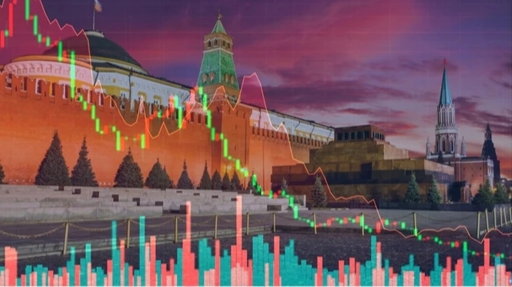Russian businesses are receiving fewer orders, facing rising costs, and growing more pessimistic about the future.
Source: The Moscow Times, an independent Amsterdam-based news outlet
Details: In July, Russia’s service sector activity index (PMI Services) dropped to 48.6 points from 49.2 in June, while the manufacturing sector index (PMI Manufacturing) fell to 47 points.
These are the lowest figures since Moscow launched its full-scale war against Ukraine. The composite PMI index fell to 47.8 points, the worst result since October 2022.
S&P Global, an American multinational specialising in financial analytics and indices, notes that the indicators were most affected by a sharp drop in new orders and a deterioration in demand. July marked the first month this year when demand in the services sector fell. Companies reported rising utility prices following a 13-14% tariff increase, alongside growing personnel costs. They are attempting to offset these by raising retail prices.
The Central Bank of the Russian Federation acknowledges the decline in business activity, but calls it a “slowdown in growth” rather than a recession. Meanwhile, the IBC business climate indicator fell from 3 to 1.5 points in July.
Analysts at Promsvyazbank, a Russian bank, and the Institute of Economics of the Russian Academy of Sciences emphasise that economic demand is weakening more than in 2016 and 2020, while manufacturing expectations have turned negative for the first time since August 2022.
Background:
The Russian manufacturing sector contracted in June at the sharpest rate in three years: production, new orders and employment declined, according to a review of business activity.Earlier, it was reported that Russia is gradually exhausting its macroeconomic reserves, in particular the National Welfare Fund (NWF), but its potential for further financing of aggression remains.The Kremlin plans to cut defence spending, which has reached record levels since the days of the USSR.German Gref, head of Russia’s Sberbank, said that the Russian economy is entering a period of difficult trials. And the difficulties in the Russian economy due to military spending, inflation and high interest rates will continue in 2026.Russian banks are becoming increasingly concerned about the amount of bad debt on their balance sheets. They are privately sounding the alarm that more and more corporate and private customers are relying on loans due to high interest rates.The coal industry in Russia is in the midst of a severe crisis, described as the worst since the 1990s. Last year and in the first quarter of this year, there were more loss-making companies in this industry than profitable ones (61.8%).
Support Ukrainska Pravda on Patreon!
From Ukrainska Pravda via this RSS feed


